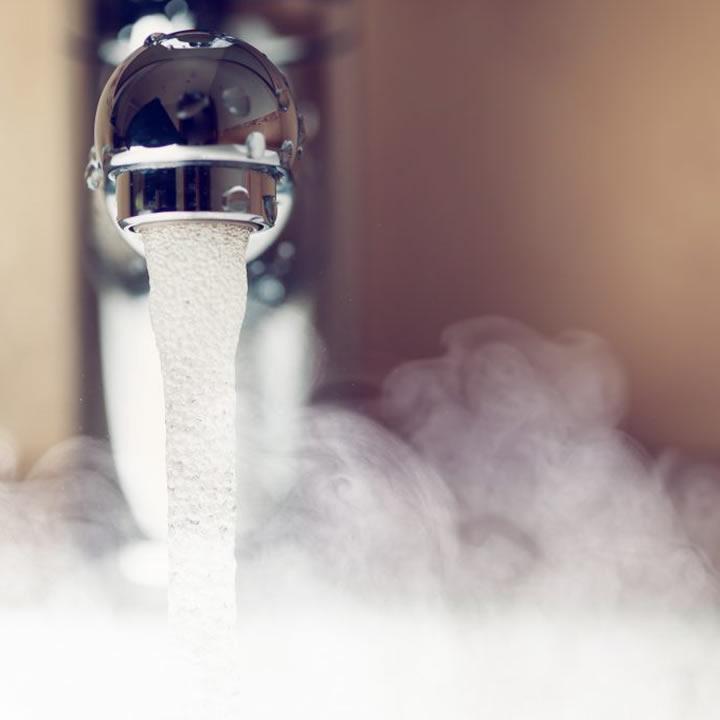When it comes to environmental care, and control, the major climate associations worry about the carbon footprint and dangerous emissions. If you have a propane water heater, you should learn how much your unit contributes to such a harmful effect on our planet. In particular, it concerns a 20-gallon propane water heater and finding a contractor necessity.
Facts About Harmful Emissions
Most commonly, users of propane and gas water heaters are exposed to many risks while running these systems. It can be a good brand and regular checkups of these units, but some malfunctions may appear regardless of care. For instance, natural gas may escape from the unit and lead to leaks. This problem will then lead to emissions of methane. Methane is a greenhouse gas. So, propane/gas water heaters are known to let at least 1% of the gas escape to the system.
In simple terms, upon gas escaping into the atmosphere (can be from a broken valve), it converts into 90% of methane. Upon reaching the atmosphere, it causes immense damage and warms the Earth. No jokes, but what you see now with melting icebergs, and warm climate in places where freezing should be normal, they are all outcomes of our impact, and our appliances, factories, and devices among others.
Some studies have been also focused on certain types of water heaters. In particular, it concerns tank and tankless storage units. Their emission rates are significantly different. When you open a hot water faucet, a tankless unit immediately initiates the gas to warm the water. Then, such a mechanism contributes to fewer emissions compared to tank units – approximately 18% less greenhouse gases are found. At the same time, tankless systems are more efficient. They burn less gas per gallon compared to conventional units. By finding a contractor at Contractorfinder, you can learn more.
What to Choose to Avoid Such Harmful Emissions?
The best choice is to skip the option of a propane water heater and go for a solar hot water heater system by finding a contractor. The solar system works by using the sun as the primary fuel. It heats the water directly or with the help of a heat-transfer fluid found in the collector. After that, heated water is transferred to the storage tank which you can use for your purposes.
Such systems radically reduce the need for electric or gas water heating but they do not eliminate them. Everything depends on the solar fraction. A unit with a 60% solar fraction minimizes the demand for water heating.
Let’s take a typical family of 4 people. Approximately, 20% of energy use is hot water for domestic purposes. Therefore, such a family may need around 6,4K kilowatt-hours of electricity per year for heating the water. Then, this electricity is generated by power plants with 30% of efficiency. All in all, it all leads to the fact, their water heaters will be responsible for about 3 tons of carbon dioxide which is a huge contributor to pollution and global warming.
If a family of four goes for a solar water heater instead of a portable propane water heater, it resembles the next scenario – you take one car off the road in terms of its harmful contributions to global warming. Accordingly, that family promotes less CO2 emissions.
As of now, based on the EESI, already 1.5M of solar water heaters have been installed for use in the US. So, the expectations on lowering the emission within years is positively promising. By finding a contractor, you can estimate the potential emission from your unit.
Should You Forget About a Propane Water Heater Purchase?
Let’s be honest, a solar water heater is better compared to a propane hot water heater in terms of harmful emissions. Yet, such systems are very expensive. Most people who stick to solar systems have medium to high paying capacities, and they live in areas with sunny climates.
Propane water heaters regardless of their potential harm and dangers are still in demand in the industry. They are efficient since natural fuel is very accessible. They generate hot water rapidly. Then, they are linked to incentives and rebates which with time may provide you with paybacks.
One more advantage of such units is their durability. If you plan to live in your household forever, or for many years, a propane water heater may live with you for at least 15-20 years with proper maintenance. So, the benefits always outweigh the dangers of CO2 emissions when it comes to the actual purchase.
By finding a contractor, you can learn how all possible emissions may be minimized. Beyond that, you may directly contact the local associations or centers that supervise climate control. The experts may guide you on whether you should replace your units with new technology.

